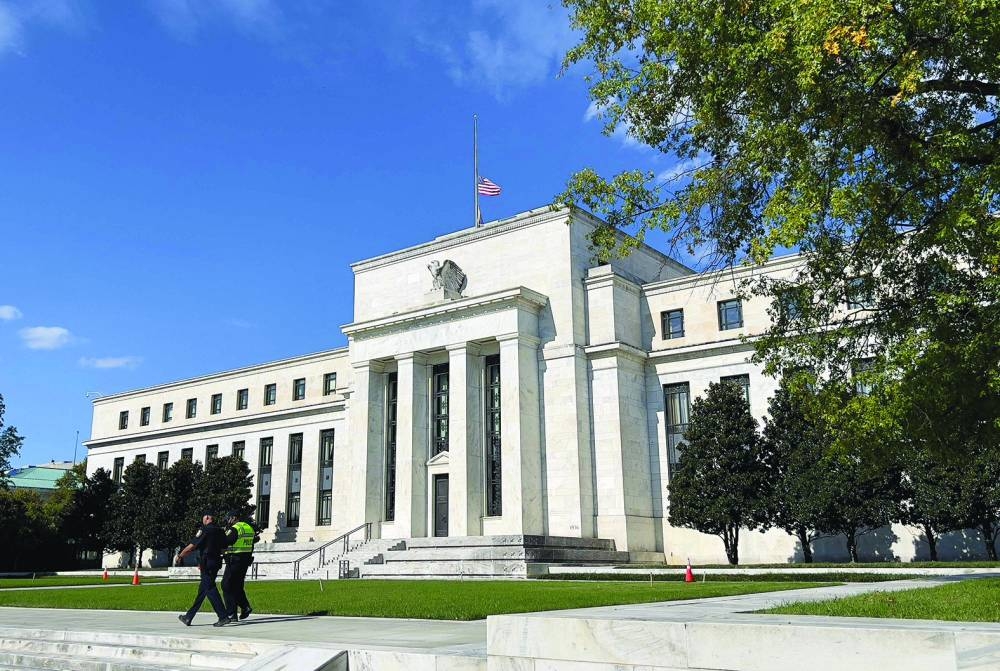US inflation cooled broadly in June to the slowest pace since 2021 on the back of a long-awaited slowdown in housing costs, sending the strongest signal yet that the Federal Reserve can cut interest rates soon.
The so-called core consumer price index — which excludes food and energy costs — climbed 0.1% from May, the smallest advance in three years, Bureau of Labor Statistics figures showed Thursday. The overall measure fell for the first time since the onset of the pandemic, dragged down by cheaper gasoline.
Similar to the May CPI report — which Fed Chair Jerome Powell described this week as “really good” following an unexpected flare-up in the first quarter — the June reading will go a long way toward giving Powell and his colleagues the confidence they need to cut rates, likely starting in September.
Policymakers will have a chance to signal such a move may be coming when they meet later in July, especially since unemployment has now risen for three straight months.
Powell, in testimony before lawmakers this week, avoided signalling the timing of likely rate cuts and insisted policy moves would be guided by incoming data. The Fed chief is set to speak again Monday afternoon in a moderated discussion hosted by the Economic Club of Washington, DC.
“We are sufficiently confident — even if the Fed is not yet ready to admit they are — that inflation is on the way back to the 2% target,” Joseph Brusuelas, chief economist at RSM US LLP, said in a note. “The road is now open to a rate cut by the Federal Reserve in September.”
After the CPI report, Treasuries rallied and traders all but fully priced in September and December rate cuts. They also marked up the odds of a reduction in November to better than even — a move that would come right after the presidential election. Before Thursday, traders and policymakers were divided as to whether there would be just one or two cuts this year.
The report also offered encouraging news for President Joe Biden as he prepares for a high-stakes press conference later Thursday amid calls from fellow Democrats for him to step aside as the party’s nominee. The embattled president cheered the data in a statement, saying it shows “significant progress” in the fight against inflation.
Shelter prices, which is the largest category within services, climbed 0.2%, the smallest gain since August 2021. Owners’ equivalent rent — a subset of shelter, which is the biggest individual component of the CPI — climbed 0.3%, also the tamest in three years.
“Probably the most significant aspect of the June report is the downshift in housing inflation,” said Julia Coronado, the founder of MacroPolicy Perspectives LLC and former Fed economist. “It looks broad-based and durable, and numerous Fed officials have indicated a downshift would boost their confidence that inflation is indeed returning to 2% in a sustainable way.”
In addition to slower rent increases, the costs of other services like airfares, hotel stays and inpatient hospital care all declined from a month earlier. New and used vehicle prices led broader decreases in the core goods basket.
The BLS noted that the new vehicles index was estimated with fewer prices than in previous months due to a cyberattack that hit thousands of dealerships in June, but software systems have since been restored. “BLS has no further information on when typical data flows will resume and is monitoring the situation closely,” according to the report.
Separate figures on Thursday showed recurring applications for jobless benefits held near the highest level since late 2021. At the same time, first-time filings fell by 17,000 last week — matching the largest drop in a year — providing some optimism that the job market is holding up.
Excluding housing and energy, services prices fell for a second month, according to Bloomberg calculations. While central bankers have stressed the importance of looking at such a metric when assessing the nation’s inflation trajectory, they compute it based on a separate index.
That measure, known as the personal consumption expenditures price index, doesn’t put as much weight on shelter as the CPI does. That helps explain why the PCE gauge has been trending closer to the Fed’s 2% target.
The PCE measure, released later this month, draws from the CPI as well as certain categories within the producer price index, which is due Friday.
“June’s CPI report is a notch better than the ‘very good’ report in May, which should boost the FOMC’s confidence about the inflation trajectory. That should set the stage for the Fed to start cutting rates in September — and even flags a risk of an earlier cut in July,” say Anna Wong and Stuart Paul of Bloomberg Economics.
The latest results from Delta Air Lines Inc suggest more scope for services inflation to cool. The carrier’s revenue projections came in weaker than forecast as competition in the domestic market drives ticket prices lower.

The US Federal Reserve building in Washington, DC. US inflation cooled broadly in June to the slowest pace since 2021 on the back of a long-awaited slowdown in housing costs, sending the strongest signal yet that the Federal Reserve can cut interest rates soon.
